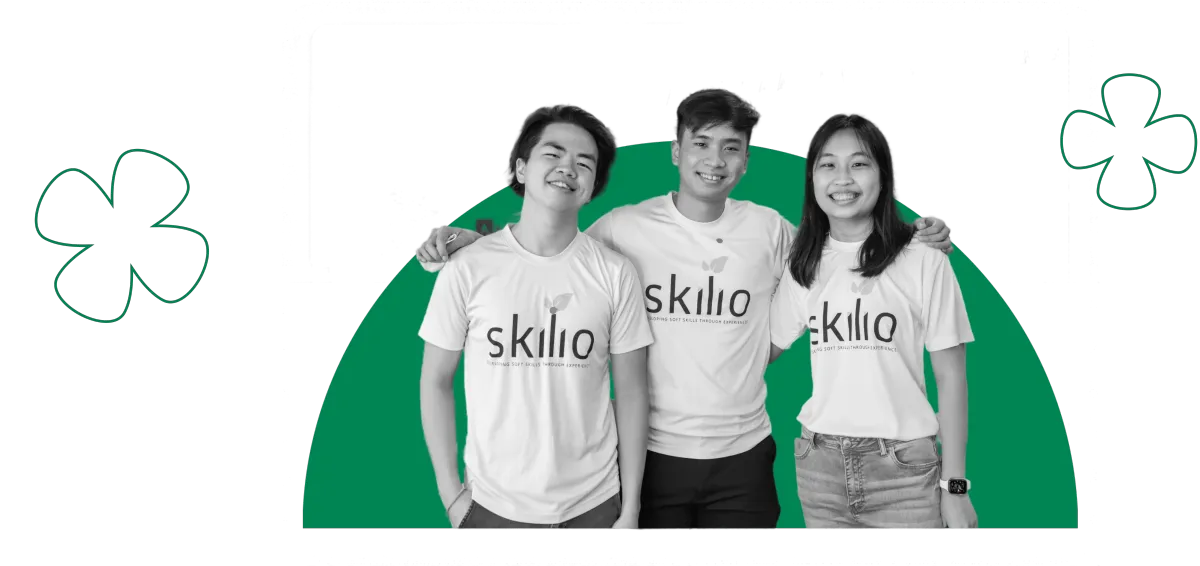
Redesigning Hiring From the Ground Up: The HR Insights Behind Careera’s Founding Story
The hiring process is broken—and both sides know it.
That’s the bold premise behind Careera, a hiring platform built to match people and companies more intelligently and fairly. In this episode of Founders HR by Skilio, host Felix sits down with Erik Ingvoldstad, co-founder of Careera, to discuss how his startup is rethinking the future of hiring, what it takes to build an ethical company from scratch, and how HR leaders can contribute to a more inclusive and impactful talent ecosystem.
From Broken Hiring to Career Empowerment
Erik describes the job market today as a “black hole”—for both applicants and employers. Hundreds of resumes flood in, many irrelevant, while candidates rarely hear back, leading to frustration and disengagement. Careera flips this by using an AI-powered, bias-free matching system that aims to make hiring more efficient, human, and inclusive.
But Careera’s vision isn’t just about placing people in jobs—it's about guiding them through an entire career journey. “We don’t want to be a job portal,” Erik explains. “We want to be a career partner.”
Co-Founders Are Like Co-Pilots—Choose Wisely
Finding a co-founder can be as difficult as finding a life partner. Erik, who initially started Careera with classmates at Hyper Island, eventually found the right technical co-founder—Dawid—through a combination of luck, persistence, and vetting.
What made the match work? Complementary skills, mutual belief in the product vision, and emotional resilience during tough times.
“There’s no one walking ahead of you throwing rose petals on this journey,” Erik quips. “It’s hard—and you need someone who has your back when things get dark.”
Hiring: Painful, Necessary, and Often Misaligned
Careera’s first hire—a UX designer—highlighted many of the structural challenges startups face in hiring:
Talent pools that don’t read job requirements
Visa and employment pass limitations in Singapore
Mismatch between available candidates and required skill sets
This real-world struggle further validated Careera’s mission to streamline and systematize fairness in hiring.
Erik's approach also includes managing a flex team of contractors, mostly developers based in Europe, using trusted personal referrals rather than open-market freelancing.
Scaling Teams With Values, Not Just Skills
One of the most powerful moments in the conversation comes when Erik recalls an incident: during Pride Month, Careera changed its logo to reflect LGBTQ+ support. Two developers based in Morocco quit in protest.
Rather than backtrack, Erik and Dawid stood firm.
“We don’t compromise on human rights. Ever,” Erik said. “It wasn’t about religion—it was about respecting people. And that’s non-negotiable.”
This episode shows how organizational values aren't just statements—they're actions, especially in times of tension. For HR professionals, it’s a powerful reminder: company culture is shaped most when it’s tested.
Tools and Remote Work Reality
While Careera used to operate with an office-based model, today the team is fully remote, relying on Slack, Jira, and a part-time project manager to stay aligned. Still, Erik stresses that managing people—especially across cultures—requires empathy and clarity.
“You think people understand what you mean, but they usually don’t,” Erik admits. “Especially in cross-cultural teams, over-communicating is often necessary.”
Bias in Hiring: The Invisible Barrier
Careera is built on the principle that bias is embedded into hiring—often unconsciously.
From ethnic-sounding names lowering call-back rates to gender dynamics in confidence (men apply with 60% fit, women often need 100%), the system is stacked unfairly.
Erik doesn’t claim to eliminate bias altogether but aims to give everyone the same starting point. Through clean CV parsing, fair scoring, and objective assessments, Careera helps companies operationalize their diversity intentions.
“Bias is your brain’s shortcut,” he says. “But in hiring, it becomes a wall.”
HR Takeaways: Insights for Building People-First Startups
Here are some standout lessons and reminders for HR leaders and startup founders alike:
🔹 Co-founder Chemistry
Complementary skill sets and shared values matter more than credentials.
Emotional alignment in times of crisis is key—especially during fundraising, hiring, or product pivots.
🔹 Fair & Inclusive Hiring
Remove identity indicators from initial screening processes.
Use AI to reduce bias—not amplify it. Ensure systems reward experience, not just self-promotion.
Design assessments that surface potential, not just polish.
🔹 Managing a Modern Team
Remote teams need structured communication, clear expectations, and cultural sensitivity.
Contractor teams function best with trust-based hiring and tight project scoping.
Leadership by example—especially during values-based decisions—builds long-term loyalty.
🔹 Values-Driven Culture
Define your company’s non-negotiables early—and stand by them.
Let your team and your product reflect your principles, even when it's uncomfortable.
🔹 Product Thinking for HR
Hiring isn’t just a process—it’s an experience. Ask: “What’s the worst part of applying to our company?”
Build for the user, not the HR admin. Focus on clarity, speed, and transparency.
Advice to Aspiring Founders (and HR Leaders Supporting Them)
Erik’s tongue-in-cheek advice? “Don’t do it.”
But if you must, then prepare yourself. “You’ll be doubted. You’ll doubt yourself. You’ll hit walls. But if you’re obsessed with solving a real problem—go for it.”
And for HR professionals supporting startups, Erik's final message is this: understand the problem deeply before building solutions. In hiring, the problem isn’t just finding people—it’s finding fairness, fit, and purpose.

